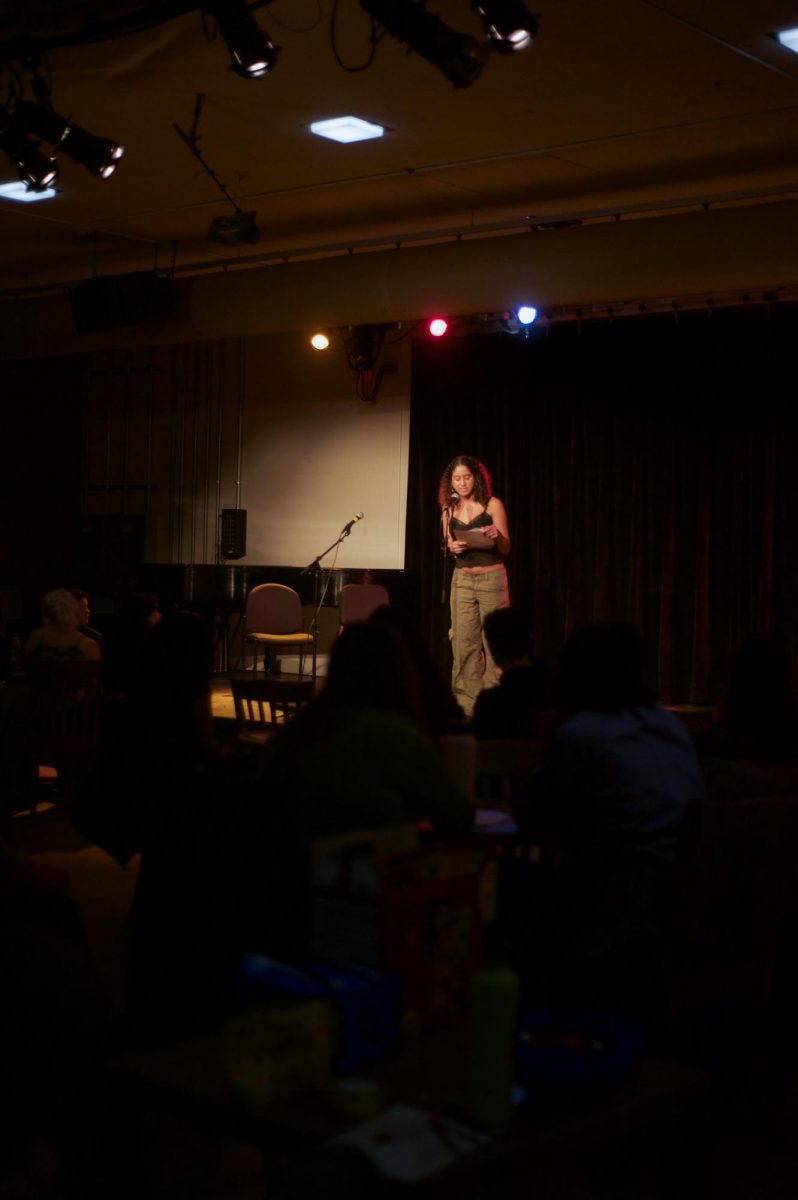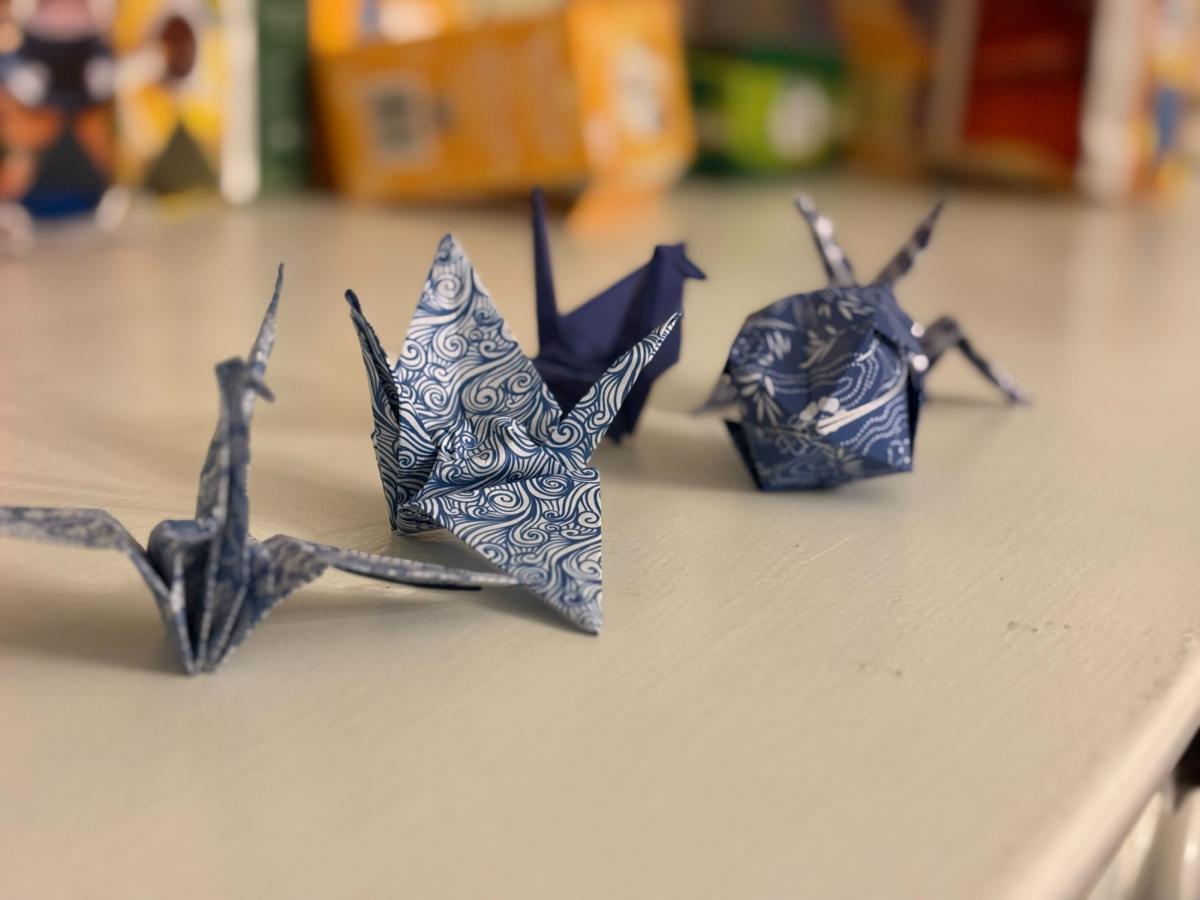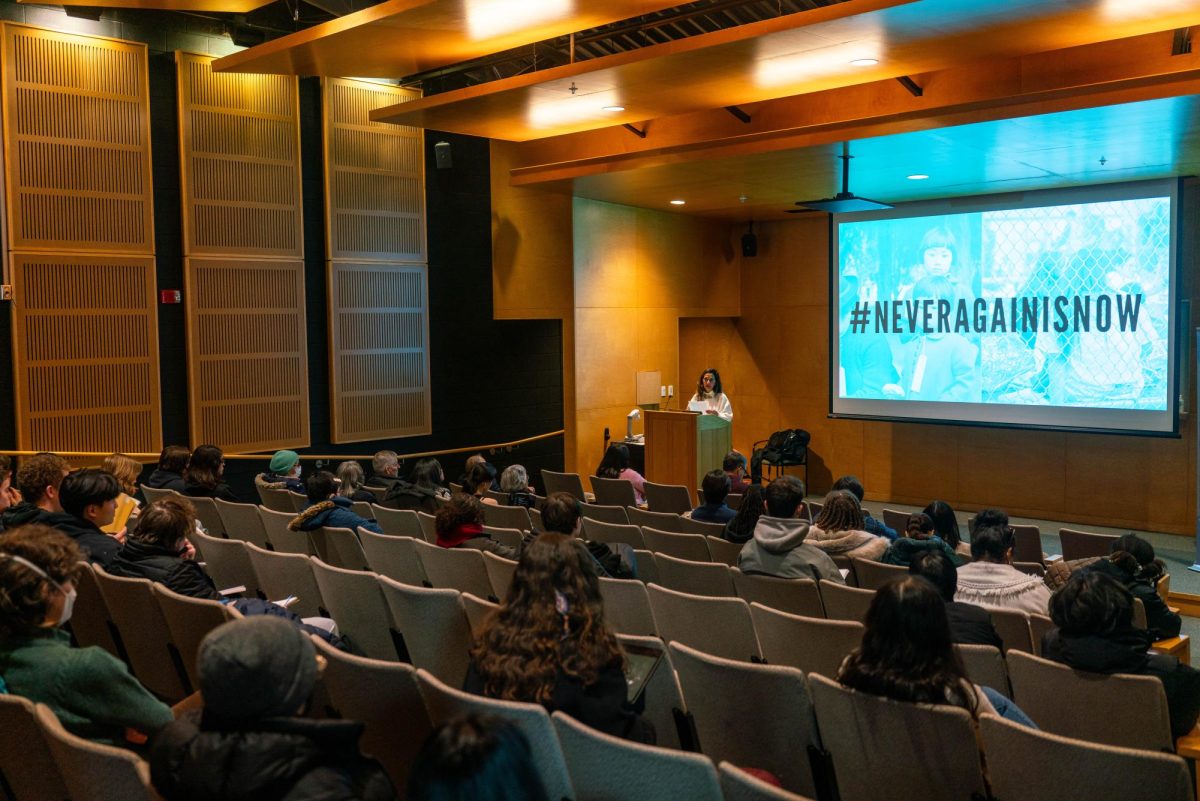Survivors of Sexual Harm and Allies, a student-led organization dedicated to advocacy and support for survivors of gender-based violence and sexual harm, hosted “Words of Healing: A Coffeehouse Event” this past Tuesday night at the Cat in the Cream. The event was created for survivors and their allies to share creative works around the theme of healing.
Performers at the event could sign up ahead of time or decide on the spot to participate in the event’s open mic portion. College third-year Ada Green, who works as a visibility event programmer for SOSHA’s advocacy team and co-organizer, described how it was designed to create space for listening and processing.
“We wanted the planned performers to open up this healing space for survivors and allies, and I think we did that,” Green said. “One of the planned performers came up to us after and thanked us for having a space for them to read. … They were super nervous, but they were like, ‘As soon as I performed, I felt so much better and so supported.’ That was the whole point, knowing that for a performer that’s super scary to do and very vulnerable, especially some of the things that they performed. I think we wanted to make sure that it was a safe space, and to have one of them come up to us and thank us for creating that type of space was very rewarding.”
The organizers provided snacks and coloring books for the attendees. College third-year Sage Reddish, who performed at the event and also serves as SOSHA’s education team coordinator, says it functioned as a welcoming and safe space.
“I felt like it was the right amount of chill while also very intentionally attentive to the speakers — and very intentional energy being filled in the space,” Reddish said. “A lot of the speeches and reflections and poems [dealt] with really heavy content, and I think that also there was a really good balance. … People gave performers their full attention. There were definitely tears shed.”
SOSHA’s advocacy coordinator and co-organizer College second-year Avery Russell, said it was meant as a comfortable space for those who wished to share their stories in a calm, “coffeehouse” setting.
“Our work really centers survivors and supporting them,” Russell said. “We have events like Take Back the Night, which is really meant to be an activist-protest event, but I wanted to do an event that was really centered on survivors and just individuals sharing their stories but that felt more calm and community-based.”
Reddish says the calmer and more artistic theme of the coffeehouse event contrasted with the rally of Take Back the Night.
“I think it’s a little different than Take Back the Night in that there’s not really that rallying cry; you’re just there to support your friends and community members,” Reddish said. “I felt like it balanced that really well. I think having it in the Cat in the Cream too — a coffeehouse — made it feel less like a rally and more like an expression of art.”
For Russell, speaking out and sharing trauma can be both a personally rewarding experience and one that can help advocate to others.
“I think it can be a form of processing,” Russell said. “One of the main reasons I think sexual harm is so much in our culture is because of the silencing culture around victims that makes victims feel like they can’t tell their stories and that they should be ashamed of it. So when you’re given spaces [where] you’re allowed to share, it really can be a healing process for you and understanding that it is not your fault.”
Reddish also notes that creativity can be a powerful tool for addressing trauma.
“I really am into art — and I think writing is a form of art — as a form of personal healing as well as healing for the community,” Reddish said. “I felt really empowered, and I was thankful especially to Avery and Ada for holding that space, a platform to not only say something that I felt healed myself but that I hope offered healing to others. It was really meaningful and really healing even if it also was sad, but I think sometimes having a space for that sadness, that I keep to myself so often, to sit with other people can be sad but healing at the same time.”
Russell says SOSHA’s events can be sometimes eye-opening for those who attend.
“I shared my work at Take Back the Night last year, and the thing that most surprised me was people coming up to me and being like, ‘This event made me realize some of the things that happened to me that I thought were okay that weren’t okay,’” she said. “I think that’s such a powerful thing, because when bigger collectives start to realize how much sexual harm and gender-based harm is within our culture, it really shifts the way we talk about it and … think about it.”
Reddish says that SOSHA creates an intentional community of people who treat each other gently.
“To me, the community of SOSHA, I think we approach each other with a very intentional gentleness and kindness,” they said. “A lot of people in that organization have come to the work because someone close to them — or them personally — have experienced the realities of gender-based violence and sexual harm. Of course, that can include anyone of any gender. Keeping that in mind … I think I do, at least for myself, approach people with a ‘How are you doing,’ and [am] more empathetic and listening and gentle and kind, and I think that’s also [what] I want to bring outside of SOSHA … because everyone to some extent has been affected by that, and we all need that softness and that listening.”
Reddish says the creativity inherent in SOSHA’s coffeehouse event can be powerful to healing.
“It was really healing for me; it sounds like it was for a lot of people as well,” they said. “I truly believe in music and dance and art as really important for healing. I really want that to be really central to a lot of what SOSHA does. Just the overall theme of ‘How can I use art to heal’ and having more spaces where people can just share.”












